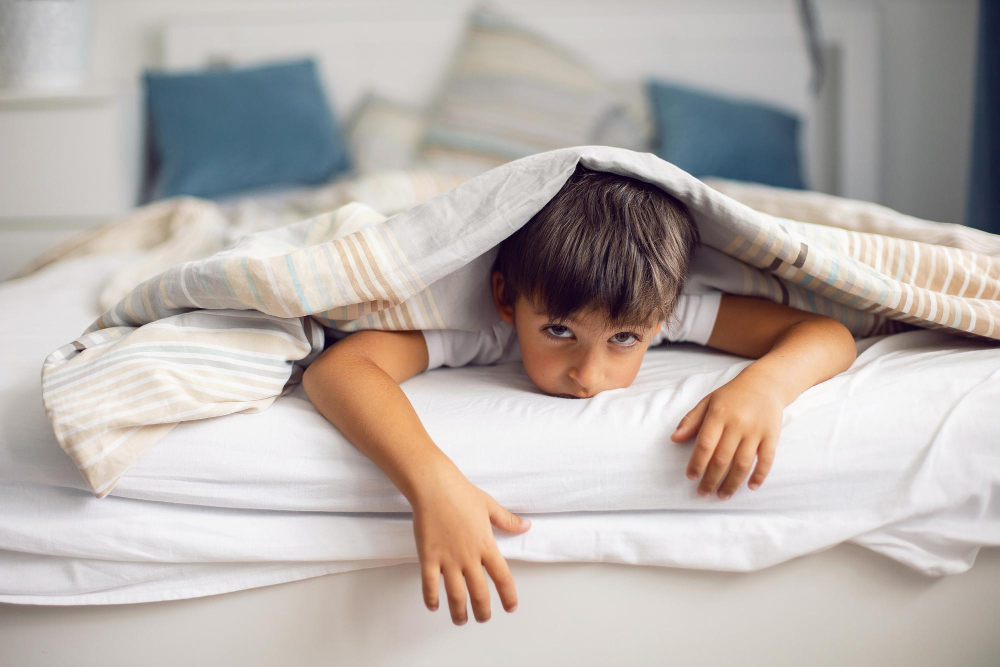What is Nocturnal Enuresis?
Nocturnal enuresis, also called bedwetting, means a child passes urine while asleep. This is common in children, especially under age seven. Although many kids outgrow it, bedwetting in children can cause stress for families. Importantly, it is not the child’s fault. Nighttime urinary incontinence is a medical term for this condition. Most children gain bladder control as they grow, but some need extra support. Understanding nocturnal enuresis helps parents respond with care and patience.
Common Symptoms of Bedwetting
Bedwetting often happens at night, but some children may also have daytime accidents. Usually, symptoms include:
However, most children with nocturnal enuresis do not have other health problems. If you notice other symptoms, such as pain or changes in urine color, talk to your doctor.
Causes and Risk Factors
There are many reasons why bedwetting in children happens. Some common causes and risk factors include:
Sometimes, medical conditions like urinary tract infections or diabetes can cause nighttime urinary incontinence. But, these are less common. If you are worried, seek medical advice.
Diagnosis: When to Seek Help
Most children outgrow bedwetting on their own. Still, you should talk to your doctor if:
Doctors may ask about your child’s health, habits, and family history. Sometimes, they may suggest urine tests or other checks to rule out medical problems. Early diagnosis helps find the best enuresis treatment for your child.
Treatment Options for Enuresis
There are many ways to help stop bedwetting in children. Treatment depends on your child’s age, health, and needs. Options include:
Not every child needs medicine. Often, simple changes and patience work well. For best results, follow your doctor’s advice on enuresis treatment.
Home and Lifestyle Tips for Parents
Parents play a key role in helping children manage bedwetting. Here are some helpful tips:
Additionally, talk openly with your child about bedwetting. Let them know it is common and not their fault. In some areas, local support groups can help parents connect and share advice.
Prevention and Long-term Outlook
While you cannot always prevent nocturnal enuresis, some steps may help reduce bedwetting in children:
Most children outgrow bedwetting as they get older. With patience and support, your child can gain confidence and better bladder control. If bedwetting continues, medical help is available. The long-term outlook is very good for most children.
For personalized advice on managing bedwetting, consult a pediatric urologist. Early support can make a big difference for your child’s health and happiness.

